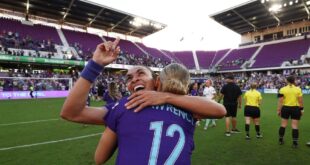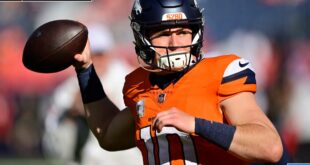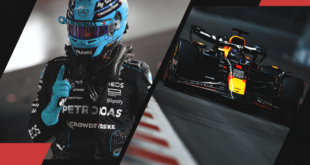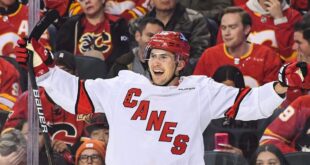I actually have the NL Manager of the Year ballot this year, an award on which I think I’ve only voted once previously in my 15ish years in the Baseball Writers Association of America (BBWAA), and certainly my least favorite one to vote on, because I don’t think there’s a good way to evaluate managers from the outside beyond the tactical stuff — and even that is difficult — while I also think that the impact of good managers is overstated. Heck, the Brewers lost one of the better managers in the game, and that just sank their season, didn’t it?
Anyway, that assignment allows me to comment on all six of the major player awards. These ballots are hypothetical. Nothing I write here has any impact on anything except your feelings. Please react accordingly.
American League MVP
1. Aaron Judge, OF, New York Yankees
2. Bobby Witt, Jr., SS, Kansas City Royals
3. Gunnar Henderson, SS, Baltimore Orioles
4. Juan Soto, OF, New York Yankees
5. José Ramírez, 3B, Cleveland Guardians
6. Tarik Skubal, LHP, Detroit Tigers
7. Vlad Guerrero, Jr., 1B, Toronto Blue Jays
8. Jarren Duran, OF, Boston Red Sox
9. Seth Lugo, RHP, Kansas City Royals
10. Brent Rooker, OF, Oakland A’s
As I write this on Sept. 23, Judge sits at 10.5 bWAR, which puts him in pretty rarefied air, and that’s not a height joke. In the integration era, that’s the 16th-best season by any position player, and six of the 15 seasons ahead of him were by guys named Mays or Bonds. This is a historic season, and yes, it’s more valuable than Shohei Ohtani’s, even with the 50/50 achievement by the latter. Judge’s OBP of .458 puts him in the top 50 in the integration era, and in that span only three players have posted an OBP over .450 and hit at least 50 homers: Barry Bonds, Mickey Mantle and Mark McGwire (twice). I’ve said before that I don’t think Judge will age well as he reaches his mid-30s, but his age-32 season is … well, one for the ages.
The rest of this list is pretty academic; Judge should win this unanimously, and anything else is just fodder for arguments on whatever remains of the site formerly known as Twitter. I will say that it’s a shame that Bobby Witt Jr. decided to turn into an absolute superstar this year, when he’s going to perhaps be a unanimous runner-up to Judge, but let’s not lose sight of what a monster year he had. It’s a testament not just to him, but to the job Kansas City has done in developing hitters in the last few years.
Also, I have two pitchers on my top 10, and they’re “over-ranked” if you just go by WAR, but I think the change in pitcher usage is going to severely disadvantage pitchers in MVP voting if we don’t account for how much less they’re used. It’s a philosophical argument, not a statistical one.
National League MVP
1. Shohei Ohtani, DH, Los Angeles Dodgers
2. Francisco Lindor, SS, New York Mets
3. Elly de la Cruz, SS, Cincinnati Reds
4. Ketel Marte, SS, Arizona Diamondbacks
5. William Contreras, C, Milwaukee Brewers
6. Chris Sale, LHP, Atlanta
7. Jackson Merrill, OF, San Diego Padres
8. Zack Wheeler, RHP, Philadelphia Phillies
9. Matt Chapman, 3B, San Francisco Giants
10. Bryce Harper, 1B, Philadelphia Phillies
If I were a contrarian, I’d craft an argument for Francisco Lindor here, but the evidence all points towards Ohtani becoming the first true DH to win an MVP award, not because he went 50/50 — although, yes, that is cool, and the way he did it even more so — but because his offense has been so valuable that it survives the demerits he receives for leaving his glove at home.
Ohtani’s season makes him the MVP because he’s been by the far the best hitter in the NL — 73.5 batting runs, more than 30 ahead of the runner-up (Marcell Ozuna). It’s the most valuable season by a designated hitter in the history of the position. Baseball-Reference has him at 8.4 WAR; second-best is Edgar Martinez’s best season, a 7.0-WAR performance in 1995 (in a slightly shortened season), and Edgar is a highly deserving Hall of Famer. FanGraphs has Ohtani at 8.3 WAR. This is historic in a different way than Judge’s season, but regardless, neither of their seasons leaves a micron of room for argument. The 50/50 part is fun, but it’s trivia, not a measure of his value to the Dodgers.
Can we take a moment to acknowledge that the Brewers got William Contreras in a trade that didn’t actually involve them? Atlanta traded a bunch of prospects to get Sean Murphy from the A’s, and one of the players they gave up was Contreras — but not to Oakland, who took Esteury Ruiz, when they should have taken Contreras. The Brewers stuck their noses in where they didn’t belong, and good for them, as they ended up winning the trade, with Contreras’s fWAR of 5.4 higher than Murphy’s career best. I suppose “mind your own business” is only true until it’s not.
While we’re at it, holy crow, Chris Sale. Dude’s 35 years old and just posted his second-best season ever, coming off four straight years of injuries and reduced performance? I think you could list him anywhere from No. 3 on down and justify it. I have a long, long history of underestimating Sale, and you can include 2024 in that, because I in no way, shape, or form thought Atlanta was getting a 6-WAR pitcher for Vaughn Grissom.

Tarik Skubal is leading a surging Tigers team. (Lon Horwedel / USA Today)
American League Cy Young
1. Tarik Skubal, LHP, Detroit
2. Seth Lugo, RHP, Kansas City
3. Cole Ragans, LHP, Kansas City
4. Corbin Burnes, RHP, Baltimore
5. Logan Gilbert, RHP, Seattle
Skubal is likely to win this one unanimously or close to it, which I guess is the story of this year — only one of the five awards has any drama that I can see, with the others all likely to be pretty obvious. The Royals putting two in the top five, one of whom was one they acquired in one of the best transactions of the offseason, is pretty notable to me. Burnes and Gilbert both get a bump for soaking up so many innings in the era of the five-and-dive starter, moving them over guys like Houston’s Framber Valdez and Ronel Blanco, who had lower ERAs but didn’t pitch as much (and in Blanco’s case probably had a lot of help from defense/luck).
National Cy Young
1. Chris Sale, LHP, Atlanta
2. Zack Wheeler, RHP, Philadelphia
3. Logan Webb, RHP, San Francisco
4. Dylan Cease, RHP, San Diego
5. Cristopher Sánchez, LHP, Philadelphia
I discussed Sale briefly above, in the MVP section, and he should win this running away. It is truly incredible to me that a pitcher who is 1) 35 years old, 2) had Tommy John and did not come back quickly or smoothly from it and 3) has that delivery just turned in the second-best year of his career. I think he’s going to the Hall of Fame. And given how wrong I’ve been about him, I’d be glad to be the one to introduce him in Cooperstown. (I could warm up the audience by reading all the dumb stuff I wrote about him. It might take too long, though.)
One other note on this ballot is Logan Webb, who I think gets underrated by advanced metrics because they haven’t entirely caught up with the change in pitcher usage. Webb throws innings by the bushel, or the peck, whatever is larger. I had him first on my hypothetical NL Cy Young ballot last year because I gave him a boost for how much he pitches. I’m doing the same here. In a world where nobody throws 200 innings, he’s about to do so — and lead the NL in innings — for the second year in a row.
American League Rookie of the Year
1. Colton Cowser, OF, Baltimore
2. Luis Gil, RHP, NY Yankees
3. Wyatt Langford, OF, Texas
Two things can be true at the same time: Colton Cowser has been the best rookie in the American League this year, and Colton Cowser is a flawed player who can’t play every day on a playoff team. By any measure, Cowser is leading AL rookies in WAR, and it’s not that close. He should win this pretty handily. That said, he can’t hit lefties at all, and he remains a dead fastball hitter against righties, with a little better performance against breaking stuff than expected given he’s around a 40 percent whiff rate. I wrote back in March that he was a real RoY candidate, because he had the playing time lined up, and he had the potential to post some strong counting stats. Even with the loss of value he gets from his time hitting against left-handed pitching, he’s still leading all AL rookies in total value.
If you’re looking for Austin Wells or Wilyer Abreu, both were essentially platoon players, and those guys end up overrated by straight WAR calculations because they don’t get the de facto penalty of facing pitchers they can’t hit. Neither Wells nor Abreu did anything against lefties this year, so their teams benched them pretty frequently against southpaws. Say what you will about Cowser’s issues hitting lefties — at least he played enough to qualify for the batting title. That’s why I included Gil, who was the best non-Skenes rookie pitcher in baseball this year, and Langford, who did play every day and overcame a slow start to end up a 3-WAR player.

In a tight Rookie of the Year race, Jackson Merrill comes out on top. (Megan Briggs / Getty Images)
National League Rookie of the Year
1. Jackson Merrill, OF, San Diego Padres
2. Paul Skenes, P, Pittsburgh Pirates
3. Jackson Chourio, OF, Milwaukee Brewers
I actually think Skenes is going to win this, because he’s more famous and had a more visible impact on the game, but that underrates Merrill, who has had a remarkable rookie season where he also changed positions and played the new one extremely well — certainly better than I expected, and I think than anyone could reasonably have expected. Skenes had a great season; Merrill had a better one. It’s not an outrage if Skenes wins, but if I had this ballot, I’d have him second behind Jackson Barrel.
The third spot came down to Chourio or Shota Imanaga, and I went with Chourio because he’s younger and I think made it pretty clear that he’s going to be a superstar, maybe as soon as next year. I have always maintained that the point of the Rookie of the Year award is to highlight the game’s future stars, not to find the next Joe Charbonneau or Pat Listach. Chourio was the only player under 21 to play enough to qualify this year, and as I write this he’s on the cusp of a 4-WAR season.
(Top photo illustration of Ohtani (left) and Judge: Judge: Dustin Satloff / Getty Images / Ohtani: Todd Kirkland / Getty Images)
Source link
 meganwoolsey Home
meganwoolsey Home



